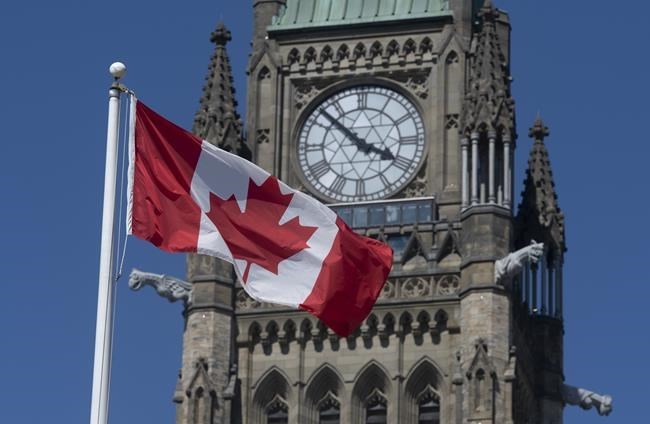OTTAWA — Parliament Hill translators are crying foul over a House of Commons move to stave off "massive" worker shortages by hiring unaccredited, off-site interpreters.
The quality of bilingual interpretation is under major threat, says an international group that represents the translators — and Conservatives are raising concerns over the security of confidential meetings.
But government House leader Mark Holland maintains that there are huge gaps in service, and bringing in outside help is crucial to keeping parliamentary business on track.
A six-month pilot project kicked off in June to test out remote translation services amid what Public Services and Procurement Canada called a worldwide shortage of interpreters.
At the end of that month, the department's translation bureau told the International Association of Conference Interpreters, which represents parliamentary interpreters, that it was seeking "external resources." The move is expected to affect those translating English and French.
That's when the alarm bells went off for the organization's advocacy lead, Nicole Gagnon.
Gagnon said she was told that "external" meant "non-accredited" — an "unprecedented" shift that makes the group "very concerned" about the quality of bilingualism across the federal government.
"The parliamentarians have come to count on the quality of our services," Gagnon said in an interview. "There's a relationship of trust there. They know when they speak in English, their words will be interpreted faithfully in French and vice versa."
Opposition House leader John Brassard said there could be security risks around moving interpretation off-site, and questioned whether third-party interpreters are being vetted thoroughly enough.
Brassard said if an interpreter without proper security clearance attended a meeting that moved in camera, those confidential discussions may not be secure.
He also said the pandemic-era hybrid Parliament has caused interpreters to sustain workplace injuries, making worker shortages even worse.
Translators have reported suffering from injuries that range from tinnitus, which causes ringing in the ears, to headaches, nausea and "acoustic shock'' after months of translating parliamentarians online via fuzzy laptop mics and poor internet connections.
But Holland said the translator shortage predates COVID-19.
"As the number of committees expand, as work of the House expands, this is becoming a very significant inhibitor to the House doing its business," he said.
"There is a very significant amount of work that is unable to be done. This isn't some tinkering of schedules. This is a massive hole in the business of the House."
The board of internal economy, an all-party governing committee of House leaders and other MPs that makes financial and administrative decisions about the House of Commons, consulted with staff about how to fix the problem, Holland said.
Alexandra Maheux, a spokeswoman for Holland, did not address the security issue raised by Brassard. She noted that Brassard is also a member of the board of internal economy. Brassard took part in the May 19 meeting where the board decided to approve the pilot project, according to the publicly available minutes, although discussions took place behind closed doors.
Since early in the pandemic, the House of Commons adapted its schedule so committee meetings could take place over the full work week (rather than over four days), a spokesperson for the House administration said.
The administration has also addressed sound issues proactively or when they arise, and has conducted testing of remote audio quality to ensure it meets "current industry best practices," the spokesperson added.
But with the federal government unable to meet translation demand with "current resources," it landed on the pilot program to bring in outside help.
The House spokesperson said it is asking other interpretation service providers for "fully qualified" interpreters, with requisite "accreditation, qualifications and experience," to support existing staff.
The May 19 meeting minutes also show the board of internal economy agreed that the House administration should still prefer translation bureau employees or freelancers, when they are available, over outside or remote interpretation services.
Still, Gagnon worries that the existing accreditation process could be broken or diluted if those workers are not held to the same standard.
She said her organization is failing to get traction on other proposed solutions, such as an electronic calendar that would allow fully accredited freelancers to share their availability, or further widening the window during which committee meetings can be held.
The House administration is expected to provide the board of internal economy with an interim report on the pilot project in September.
This report by The Canadian Press was first published July 27, 2022.
---
This story was produced with the financial assistance of the Meta and Canadian Press News Fellowship.
Erika Ibrahim, The Canadian Press



